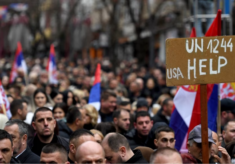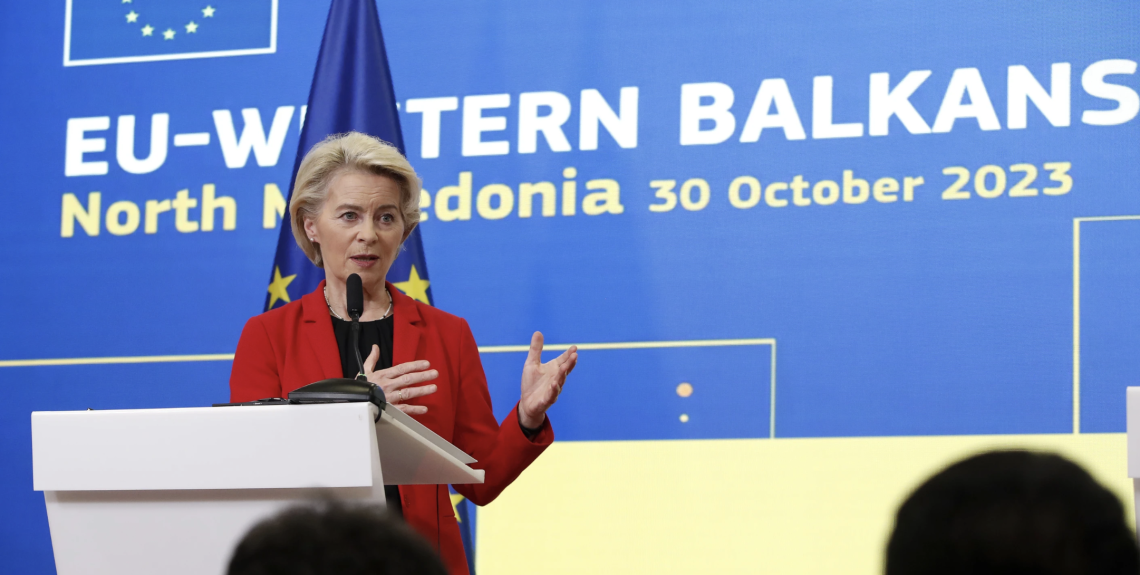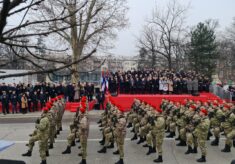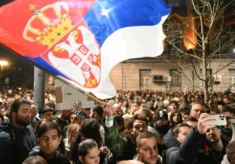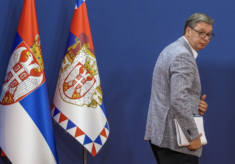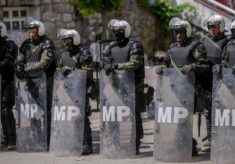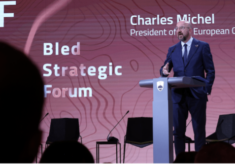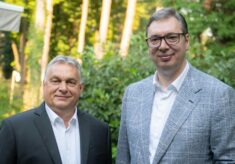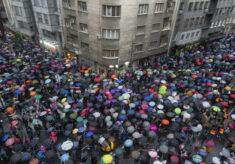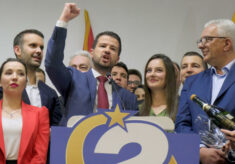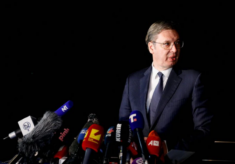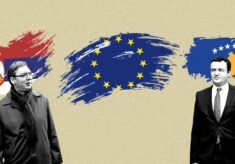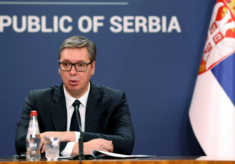Faced with persistent challenges in resolving the Kosovo-Serbia dispute, and eager to keep the region close to the EU before its full enlargement, the European Union will soon implement a new approach aimed at stimulating economic development in the Western Balkans in order to reduce regional tensions. This strategic reorientation demonstrates the EU’s commitment to addressing the region’s enduring political deadlock and advancing stability. Nonetheless, the concrete effects of this approach have yet to be seen and may fall short of the desired outcomes.
Ursula von der Leyen, President of the European Commission, emphasised the new approach during a tour of the Western Balkans at the end of October. Von der Leyen used the occasion to unveil the details of a € 6 billion growth plan – 2 billion euros in grants and 4 billion euros in loans – aimed at “bringing our economies closer together.” “The growth plan will stimulate your economy, create good jobs, and simultaneously support your path to the European Union,” she said, adding that “this plan has the potential to double your economy in ten years – that’s the goal.”
The plan was first presented at the Berlin Summit in Tirana last October. EU leaders emphasised at the time that this initiative offers the countries in the Balkans certain segments of the EU single market in exchange for comprehensive reforms, as a prelude to their eventual full membership in the bloc. Von der Leyen, European Council President Charles Michel and German Chancellor Olaf Scholz attended the meeting.
According to von der Leyen, the EU’s new growth strategy allows Western Balkan countries to gain access to specific segments of the EU single market in exchange for demonstrated reforms. These countries would be able to participate in the EU market in a variety of sectors, including goods, services, road transport, energy, electricity, customs cooperation, e-commerce, and cashless payments.
Furthermore, von der Leyen stated that countries that implement the requested reforms as soon as possible would receive further investments. Von der Leyen emphasised constantly the conditionality of these funds, stating that they would be released if reforms were successfully implemented. Out of the 30 billion euros pledged three years ago, the EU has already mobilised 16 billion euros for investment in the region. Von der Leyen emphasised the importance of tapping into the potential of the Western Balkans and bringing them closer to the European single market in encouraging these reforms. She also stated that, by failing to move forward with reforms, the only one to be blamed for impeding progress is a country itself.
Albanian Prime Minister Edi Rama expressed optimism about the new plan, seeing it as promising for a more cooperative and partner-like relationship that would improve mutual understanding. Other leaders in the region, particularly those in Serbia, were more reserved in their response.
President Vucic, in particular, did not attend the Berlin Process Summit in Tirana, where regional and EU leaders signed cooperation, trade and EU integration agreements. Instead, he went to China to sign a free trade agreement and sent Prime Minister Ana Brnabic to the European summit. His absence fuelled speculation among EU diplomats that he was avoiding difficult questions about the September 24 terrorist attack in northern Kosovo, potential EU actions, and calls to limit ties with Russia and China. Several analysts also expressed reservations about the EU initiative’s feasibility, arguing that it could further delay actual enlargement while failing to address pressing issues such as the Kosovo-Serbia conflict.
Meanwhile, the dispute is still ongoing and appears to be so for the foreseeable future. On the side-lines of the European Council in October, the EU convened a high-level meeting in Brussels at the end of October. Macron, Scholz, Meloni, Serbian President Vucic, and Kosovar Prime Minister Kurti attended the meeting, which aimed to bring the parties back to the negotiating table following the incident in Banjska.
Unfortunately, despite diplomatic pressure from Paris, Berlin, and Rome, the leaders of Serbia and Kosovo were unable to agree on a timeline for de-escalating ongoing tensions and establishing an association of Serbian municipalities in northern Kosovo, a critical step towards normalisation. And with European elections on the horizon and early elections in Serbia scheduled for the 17th of December, the Serbia-Kosovo issue appears to be stalled for the foreseeable future.
